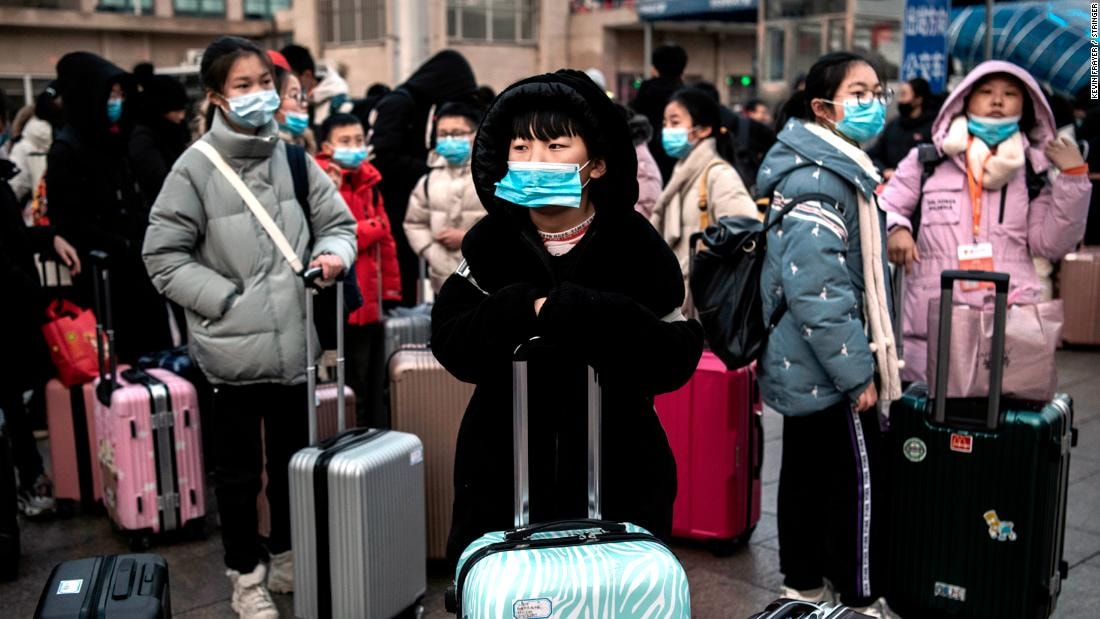Wuhan pneumonia virus 'ruins' China's New Year celebration plans
(Baonghean.vn) - Tomorrow (January 25) will be the first day of the Lunar New Year, and many Asian countries will happily welcome the New Year of the Rat. However, according to CNN, the celebrations in China will be significantly reduced in scale compared to previous years due to the new strain of coronavirus.
 |
| Children wearing face masks wait for a train at Beijing Railway Station on January 21. Photo: Getty |
Authorities have canceled all large-scale New Year celebrations “to control the epidemic,” according to the Beijing Culture and Tourism Bureau.
“All large-scale events, including temple festivals in Beijing, have been canceled from today. The public will strengthen preventive measures and support this decision. We will announce policy changes according to the development of the epidemic. Organizers will have to properly handle the impact of canceling large-scale events. And we wish all people a happy Lunar New Year,” the agency said on January 23.
In Hong Kong, celebrations were also cancelled, and many other cities have issued guidelines for people to avoid large public gatherings.
In Wuhan, the city of 11 million people at the centre of the outbreak, a “temporary suspension” of public transport has been imposed, and residents have been asked not to leave the city, meaning many will not be able to reunite with their families for the Lunar New Year.
However, according to CNN, this is not easy to do, and the challenge that authorities are facing while implementing the task of locking down the city is enormous. To help readers visualize, this news site also compared the lockdown of Wuhan to closing all transportation routes of a city three times the size of Chicago, 2 days before Christmas.
“The Chinese New Year is the most important holiday for Chinese people. And many people from rural China come to Wuhan to do business, and now it is difficult to ask them not to go back to their hometowns to see their relatives,” Professor Yuen Kwok-yung, a leading microbiologist, told CNN.
